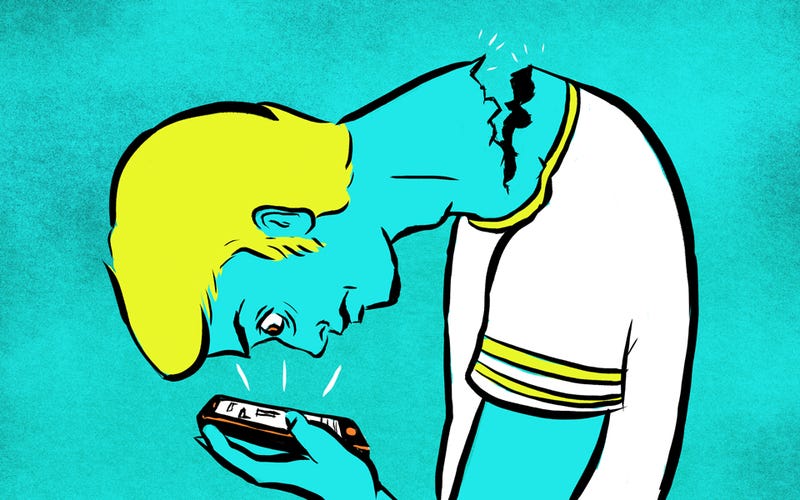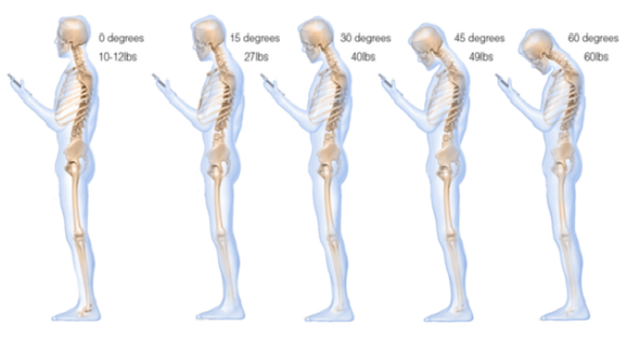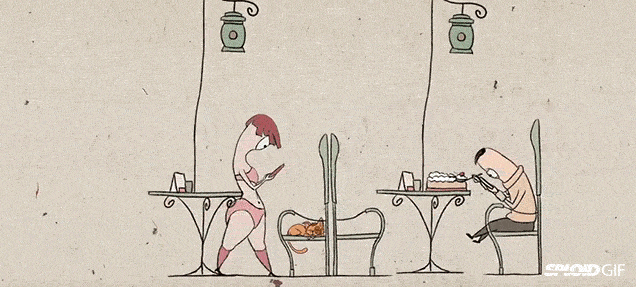
A few months ago I started getting headaches, and they were weird. If a bad hangover headache feels splitting, I’d describe these headaches as searing, as if someone had hit me over the head with a red hot rod of steel sending electric bolts of pain across my skull.
By the time I finally went to a neurologist, I thought death was near. I’m being dramatic. I’m not exaggerating, though. A couple of years ago my cousin was diagnosed with brain cancer after suffering ongoing headaches that turned out to be caused by a tumor, and the family’s been on edge about all things brain-related since. While it seemed highly unlikely that my headaches were an indication of something so serious, I found myself wringing my hands in the waiting room of a New York University doctor’s office a couple weeks ago, prepared for the worst.
“I think I know what’s going on,” Dr. Myrna Cardiel told me casually after a 20-minute-long examination. After I described my headaches, she’d shined lights in my eyes, tested my coordination skills, watched me walk, and asked a laundry list of questions. Then, she pulled up Google and typed in a scary-looking phrase: “occipital neuralgia.”
Using Google Images to illustrate her explanation, Dr. Cardiel explained how the occipital nerves emerge from the spinal column at the back of your neck and branch out along your entire scalp. Occipital neuralgia is a condition that occurs when the base of the nerves become compressed or damaged. This results in chronic, often burning headaches that may be localized to the back or side of the head or, as in my case, spread to the top of the scalp. As she scrolled through diagrams of nerves stretching across skulls and pictures of doctors stabbing needles into patients’ scalp, the hand-wringing started again.
“What causes it?” I asked with a furrowed brow. And Dr. Cardiel asked me right away if I worked on a laptop or a desktop. (I usually work on a desktop with a propped up display.) We talked about my sleeping positions and posture. (I do my best to stand up straight!) Anything I was doing that could strain my neck muscles could ostensibly be the cause of the condition. Then, I arrived at the obvious.
“What about smartphone usage?” I asked. “I’m constantly craning my neck to look down at my phone. Maybe that has something to do with it.”
“You know what,” Dr. Cardiel said, nodding. “I’ve been a practicing neurologist for 10 years, and I’ve seen cases of this condition skyrocket since smartphones became popular. I should write a paper.”
Someone should. A cursory search for “occipital neuralgia smartphones” will bring up a recent report from the Sioux City Journal that warns of the strain our handheld devices put on our necks. One journal article cited in the article explains how tilting your head forward 60 degrees puts an extra 60 pounds of pressure on the top of your spine and surrounding muscles. This, unsurprisingly, can lead to pain:

Image via Surgery Technology International
“People who were voracious readers, they would have these symptoms,” pain specialist Dr. Jeremy Poulsen told the paper. “If those nerves are constantly being impinged by the muscles spasming and pulling, that leads to conditions such as occipital neuralgia—basically it’s headaches that can be miserable.”
I can attest: the headaches are miserable! But what was I going to do? I do read voraciously on my smartphone, largely because reading is a big part of my job. I also like to play SimCity BuildIt, a flawed but awfully addictive
Luckily, there is a straightforward treatment for occipital neuralgia. But it’s not a cure. After our enlightening conversation and shared Google searches, Dr. Cardiel filled up a half dozen syringes with a cocktail of steroids and numbing agents. She calmly explained that she was going to inject the nerves above my neck with this solution, causing the back of my head to go completely numb. However, the solution would travel through the nerves and block them from sending the signals that were causing my headaches.
It hurt. I think the doctor gave me about 20 separate injections, after which I came frightfully close to passing out. After regaining my composure on the examination table, Dr. Cardiel told me that I should feel better after about a day, and I did. However, if I really wanted the headaches to stop, I’d have to keep my head up straight. She gave me some literature that also encouraged yoga and massage as methods for relieving the tension in my neck, both of which sounded much better than the injection technique.
All that said, I’ll never look at my smartphone the same way again. Or at least I’ll try not to. Like all of us, I’ve depended on the technology more and more over the years, but I’ve paid less and less attention to how I’m using it. A few weeks ago, Sploid posted this animation making fun of our embarrassing smartphone addiction

So in a couple of months, I’ll head back to the neurologist and probably get more needles stabbed into my head. The hypochondriac in me is glad that my headaches don’t point to something more serious, something like brain cancer. But it’s going to be a struggle to change my smartphone habits. Even though it’s hurting me, I can’t imagine life without my beloved little pocket computer.
Update 03.14.2016: After nine months of relative peace, my headaches recently came back with a vengeance. The electric, searing pain felt immediately familiar but somehow worse—probably because I’d been enjoying feeling normal for so long. Not even prescription painkillers helped.
But I knew this was going to happen. The shots that I’d gotten last summer to treat my headaches were supposed to wear off after a few months. However, I’d been focusing on better posture and less smartphoning. Then my life got a little more stressful, and I could feel myself tensing up. This is exactly what causes occipital neuralgia and its unique brand of brain hurt.
Anyways, I went back to Dr. Cardiel and had another round of shots. Getting needles stabbed into the back of your head is not fun, but it’s worth it. So if you ever have weird headaches that won’t go away, go see a neurologist. It can be a little anxiety-inducing! As my doctor told me, however, you shouldn’t have to live your life in pain.
This post was originally published on 06/08/2015.
Illustration by Tara Jacoby